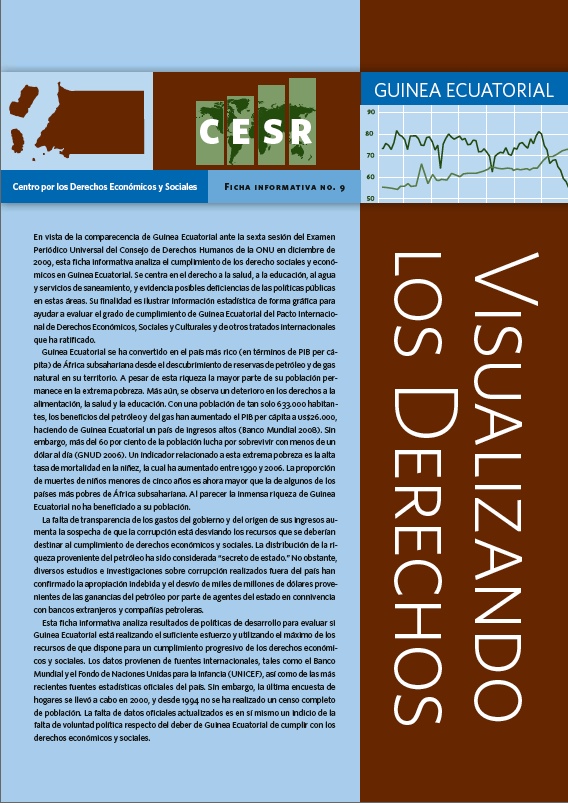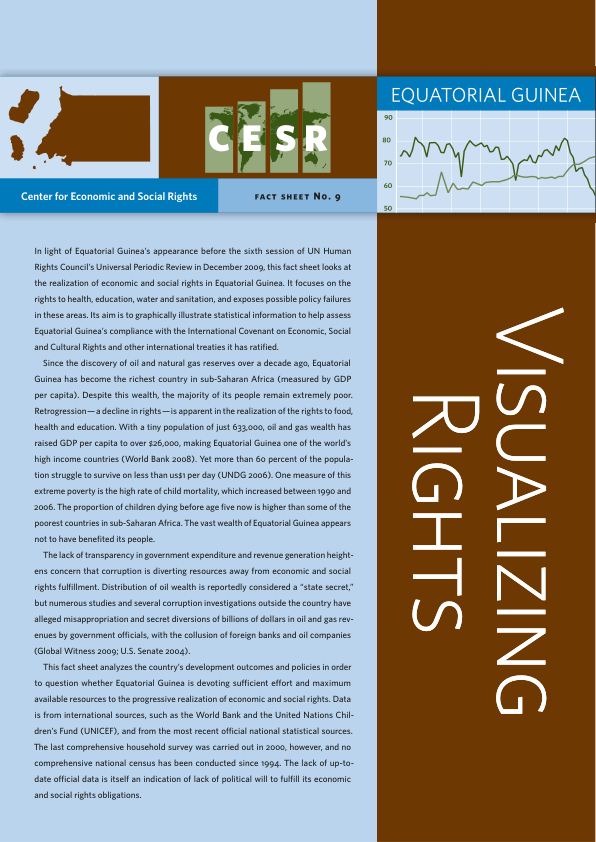 Equatorial Guinea has become the richest country, per capita, in sub-Saharan Africa since the discovery of oil and natural gas reserves in the 1990s, yet the majority of its people remain extremely poor. Despite its increased wealth, the realization of the rights to food, health and education has declined. These retrogressions are documented in CESR's statistical analysis of the country's economic and social rights outcomes relative to its resources. According to official UN data, GDP per capita is over US$26,000, yet almost two-thirds of Equatoguineans still live on less than US$1 a day. Access to health and education has deteriorated as the country's economy has boomed. The proportion of children dying before age five has risen in the last 15 years and is now higher than some of the poorest countries in the region.
Equatorial Guinea has become the richest country, per capita, in sub-Saharan Africa since the discovery of oil and natural gas reserves in the 1990s, yet the majority of its people remain extremely poor. Despite its increased wealth, the realization of the rights to food, health and education has declined. These retrogressions are documented in CESR's statistical analysis of the country's economic and social rights outcomes relative to its resources. According to official UN data, GDP per capita is over US$26,000, yet almost two-thirds of Equatoguineans still live on less than US$1 a day. Access to health and education has deteriorated as the country's economy has boomed. The proportion of children dying before age five has risen in the last 15 years and is now higher than some of the poorest countries in the region.
The factsheet is part of CESR's Visualizing Rights series. Each factsheet focuses on a country and its economic, social and cultural rights obligations. This focus helps enable intergovernmental human rights mechanisms, such as the UN, and national and international NGOs, monitor governments' compliance with their economic, social and cultural rights obligations.
The latest available socioeconomic data is used, taken either from international sources such as the World Bank or the UNDP, or national sources, such as national statistics bureaus. This data is displayed using graphs and charts, and then analyzed and interpreted. This is meant to shed light on the condition of governments' economic and social rights obligations.
